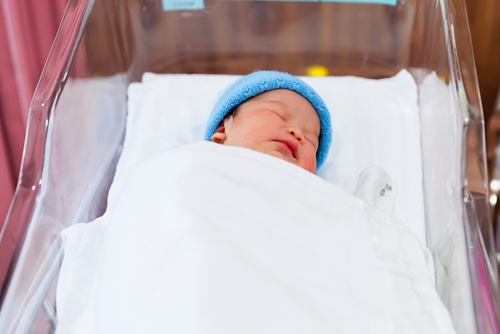Stem cell therapy clinical trial to begin in the U.K.
Although the field of research for orthopedic stem cell therapy is still growing, successful therapies have already proven to be extremely effective. Offering an alternative to invasive surgeries that are often riddled with complications and long recovery periods, stem cell therapy is a form of regenerative medicine that promotes natural healing. The therapy has successfully used the body's own cells for curing extensive injuries in the back, shoulders, knees and hips. In the latest news, researchers in the U.K. and Sweden have announced that they will soon begin a clinical trial using stem cell therapies to treat brittle bone disease in newborns and babies in utero.
What is brittle bone disease?
The advanced technologies of stem cell therapies already have a reputation for curing injuries, diseases and other medical conditions that were at one time believed to be chronic. Research shows that stem cell therapies may be able to help with another extremely rare disorder. While it is not believed to be able to cure brittle bone disease, it will ideally alleviate the symptoms of this incurable disorder. Brittle bone disease, medically known as osteogenesis imperfecta, affects 1 in 25,000 births of European descent, according to the BBC. The disorder causes impaired growth and frequent bone fractures, and in many cases it can be fatal.
The disease is caused by complications during DNA development that negatively affect one of the body's proteins called collagen. Collagen acts almost as a glue for bones, providing them with structure. The DNA complications cause the collagen in the body to be weak or even nonexistent, making the baby's bones extremely fragile. Newborns delivered with a number of fractures do not often have a high survival rate, according to the BBC. Those who do survive childbirth will experience severe growth impairments and multiple broken bones and fractures each year.
The clinical trial
Spearheaded by the Karolinska Institute in Stockholm, Sweden, the study's team has already treated more than one child with the disease. However, the upcoming clinical trial will be the first ever in-utero stem cell therapy to take place. The trial, coined Boost Brittle Bones Before Birth, aims to discover whether treating those with the disease before birth will reduce the number of fractures. BOOSTB4 will treat 15 babies once after birth. Another 15 will be treated with stem cell therapies while they are still in the womb, about 20 to 30 weeks into the pregnancy, as well as during the first few years of life.
The hope is that by administering the therapy in utero, during the time that much of a baby's bone growth and development takes place, it will be even more effective. The success of this clinical trial could mean a world of difference for young children born with brittle bone disease. Doctors believe that one day, other muscle and bone disorders could also benefit from the same stem cell therapy.



